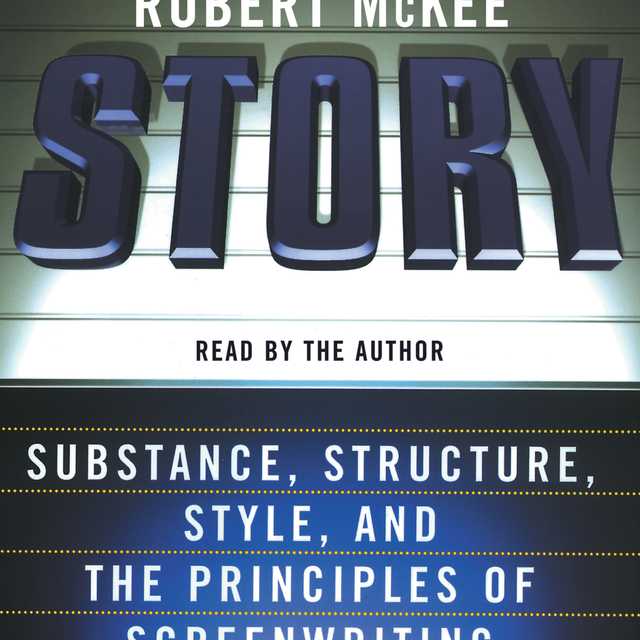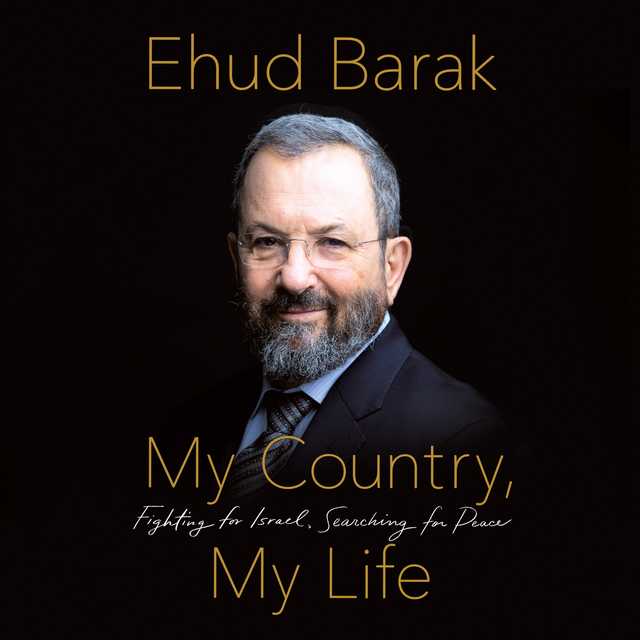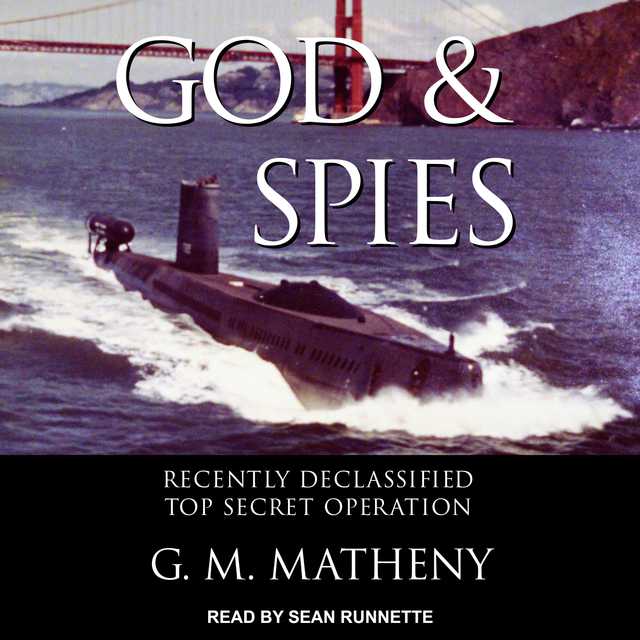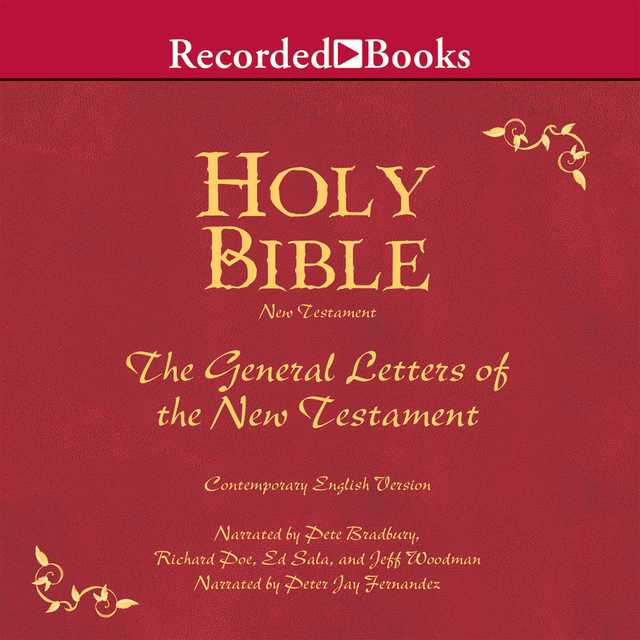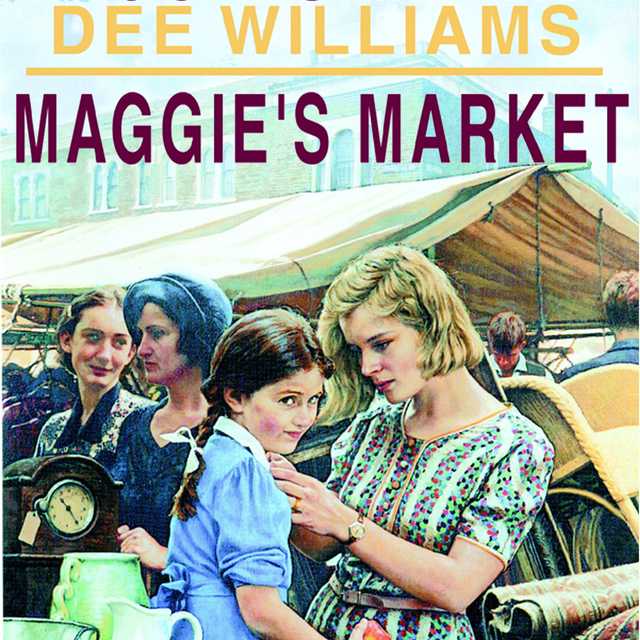Story Audiobook Summary
For more than 15 years, Robert McKee’s students have been taking Hollywood’s top honors. His “Story Seminar” is the world’s ultimate seminar for screenwriters, filmmakers, and novelists. Now, Robert McKee’s Story: Substance, Structure, Style, and the Principles of Screenwriting reveals the award-winning methods of the man universally regarded as the world’s premier teacher on screenwriting and story. With Hollywood and publishing companies paying record sums for great stories, and audiences clamoring for originality, McKee’s Story gives you the strategies you need to win the war on cliches.
Story is about form, not formula. McKee’s insights cut to the hidden sources of storytelling, the decisive differences between mediocrity and excellence.
This audio goes well beyond the essential mechanics of screenwriting and is packed with examples from such film classics as “Casablanca” and “Chinatown.” Then, scene by sequence by act, he illuminates the principles of story design that take a writer’s vision to brilliant realization. Story elevates the craft of screenwriting to an art form.
Take it from the pros; if you’re serious about your writing, this is the audio that will help you to get your story from page to screen.
Other Top Audiobooks
Story Audiobook Narrator
Robert McKee is the narrator of Story audiobook that was written by Robert McKee
Robert McKee teaches his 3Story Structure2 class annually to sold out auditoriums in Los Angeles, New York, London and film capitals throughout the world. A Fulbright Scholar, this award-winning film and television writer has also served as project and talent development consultant to major production companies such as Tri-Star and Golden Harvest Films. He lives in Los Angeles and Cornwall, England.
About the Author(s) of Story
Robert McKee is the author of Story
More From the Same
- Author : Robert McKee
- Dialogue
- Action
- Storynomics
- Character
- Publisher : HarperAudio
- Abraham
- American Gods [TV Tie-In]
- Dead Ringer
- House of Sand and Fog
- Prey
Story Full Details
| Narrator | Robert McKee |
| Length | 6 hours 12 minutes |
| Author | Robert McKee |
| Publisher | HarperAudio |
| Release date | January 03, 2006 |
| ISBN | 9780061146534 |
Additional info
The publisher of the Story is HarperAudio. The imprint is HarperAudio. It is supplied by HarperAudio. The ISBN-13 is 9780061146534.
Global Availability
This book is only available in the United States.
Goodreads Reviews
Hannah
January 21, 2023
Click here to watch a video review of this book on my channel, From Beginning to Bookend. A superb book that illuminates the purpose of writing stories and the most effective approach to penning tales that transcend the ordinary.
Josh
June 19, 2008
YES! It took me six months, but I finally, finished this bitch. The reason it took me six months was that Story is incredibly dense, and in the best possible way. If you want to understand what makes for a good story, and how and why they work, this is the book to read. But you'll need to read it slow because this is the kind of dense where you'll want to stop and think about what you just read after every few pages to make sure it really sinks in.Though oriented primarily towards screenwriting, the material is universal enough to address other storytelling mediums as well.In fact, I actually think it covers stagewriting more effectively than a lot of other books I've read about writing for the stage. Or maybe that's just because Mr. McKee says all the same things I said back to my professors when they critiqued my plays in stupid ways.But whateva. Read it.
K.M.
May 11, 2014
I can't believe it's taken me so long to read this book. I expected more of the same: structure, story elements, character tips. And those are certainly there. But Story actually deserves its tremendously broad title, because that's exactly what this book is: a discussion of *story.* It's theory and practicality all wrapped up into one module. McKee presents ideas I've never seen elsewhere, backed up by solid example after solid example and all in an extremely engaging and absorbing way. This is deep stuff, but McKee makes it thrilling.
Ksenia
September 23, 2016
This is not a book. This is like a school in a book. A master's degree. The amount of notes I took got out of hand, so I decided to just outright buy it, to have it handy. The best parts are the scene analysis chapters, which are pretty much the same for novel writing and screenwriting. Seeing a scene broken down into manageable bits has made it clear for me how to rewrite my scenes to make them better. Because if I can't write excellent scenes, I can't write an excellent book, period. So glad I have revisited this book. It was like reading a guide to self-critique that doesn't sound like a guide but rather like a friend. And in the end it moved me to tears—the truth of it was overwhelming.
Graeme
October 15, 2018
Putting this re-read aside - other priorities - still an excellent book.This is the most useful book in my writing library. I literally read and reread this book until I had absorbed it's messages into the marrow of my bones.An endlessly valuable resource that informs the basic structures both large and small of the stories that I write.Worth reading even if you have no ambition to write for the insights that it will give you into the nature of story and narrative.Written to support the development of screenplays, but also completely adaptable to the Novel.
Jerilyn
August 25, 2011
As a freelance editor of any type of writing, I am always searching for insight, wisdom, guidance, illumination about the many forms of writing that cross my desk. I'd heard about McKee's "Story" but shied away because screenwriting is so far removed from my usual work. Or so I thought. I bought the digital version on a whim thinking that it might prove useful someday as a reference book. I was immediately hooked and read it straight through. Then I went back and highlighted many passages for future pondering. It's densely written. You won't find this one tagged "light reading." Your commitment will be highly rewarded. McKee sets your expectations with these section heads in the Introduction. "Story is about principles, not rules." "Story is about eternal, universal forms, not formulas." "Story is about archetypes, not stereotypes." "Story is about thoroughness, not shortcuts." "Story is about the realities, not the mysteries of writing." "Story is about mastering the art, not second-guessing the marketplace." "Story is about respect, not disdain, for the audience." "Story is about originality, not duplication." All true. These tenants apply to screenwriting, novels, non-fiction, poetry, short stories. McKee explains it all with the passion of a true believer who is also an expert..I reveled in his diverse examples of movies that got it right and added some to my "gotta see" list. I was fascinated by the line-by-line analysis of a pivotal scene from Chinatown. I watch movies differently and enjoy my heightened awareness of why something is working. Or not. I'm a better writer and a more discerning reader because of this book.I bought it thinking that it could be a useful reference for screenwriting specifically. I now know it is a valuable reference for writing anything.
David
June 14, 2021
I didn't read this book in order to be a good screenwriter. In fact, I have no ambition to write stories for film. Instead, as a film composer, I wanted to improve my understanding of how a story works. I wanted to learn about the arc of a good story, how scenes are constructed, and how characters work in a story. Most important, I wanted to learn how to distinguish a good story from a mediocre one, so that I could choose which films I would enjoy working on.I was definitely not disappointed. This is a fantastic book about how good stories are written, how good films are made. I highly recommend this book for anyone who wants to understand how films work. There are three modern forms of storytelling; theater, film, and the novel. A story might work well with one of these forms, but probably not all three. Each of these forms has a different point of view, and tells a story in a different way. When we say "the book was better than the movie" (or vice versa), there is a good reason for that. It's not because the filmmaker is less talented than the novelist. It is because what works in a novel is much more difficult to communicate in a movie.People argue which is more important, plot or character. Robert McKee claims that this is a silly question because they are both the same! But character is not the same as characterization. It makes no sense to say that a story is character-driven. That is because character IS the story. On the other hand, characterization is a necessary aspect what makes the plot believable.I liked McKee's first commandment for all temporal art: "Thou shalt save the best for last." This makes sense; you want the audience to get up at the end of a story, enthused about what he/she has just experienced.McKee talks a lot about character. A character must be empathetic. This means that a spectator must be able to feel the way a character feels. But this does not mean that a character should be sympathetic. For example, we should not need to feel sorry for a murderer.McKee also writes about symbolism in a movie. Symbolism--even lots of it--can be present in a movie. But--and this is a biggie--symbolism should not be readily apparent; it should be subliminal. What moves an audience? It is a reversal in values. It is a true change in character, especially a revelation.Should a film have voice-over narration? The answer to this really surprised me. If a story is well-told without any narration--then it should have voice-over narration, as it serves as counterpoint.The book has plenty of examples from well-known movies. Since the book was published in 1997, it does not include examples from very recent movies--but this doesn't matter, as he takes his examples from movies that movie-lovers should watch!
Paul
June 22, 2011
If you're a writer of drama or fiction, you need to master these rules before you consider breaking them.I knew from an early age that I wanted to write stories, but it wasn't till I was about 17 that I learned that there are actual methods, principles, and techniques involved in storytelling, when I received as a gift a copy of The Art of Dramatic Writing by Lajos Egri. Wow! What a revelation! I read it greedily.Flash-forward to 1990. I was 31 and now had my own TV series, The Odyssey, in development with the CBC in Canada. My writing partner Warren Easton and I were under pressure to come up with a pilot script and 12 more stories to flesh out a possible first season of the show. We'd bought a copy of The Golden Fleece by Robert Graves and The Complete Fairy Tales of Brothers Grimm, Volume 1 to search for story ideas for our mythologically based fantasy series, but were not really finding stories that would fill our action-packed half hours. One of the CBC executives offered to let me have a photocopy of a set of notes from McKee's workshop, taken by a fellow participant. I'd heard of McKee and so I gratefully accepted them.Back home I started reading, and was immediately electrified. (The notes themselves were excellent, typed by this person on a laptop and capturing most of what McKee said.) Here was everything I wanted and needed to know: genre, character, structure, controlling idea, protagonist, acts, turning points, and much, much else. McKee came across as definite and authoritative. Here was no "well, some people say this, but on the other hand other people say this other thing...." As far as McKee is concerned, the principles of sound story design have long since been established; they are simply not widely known, and he sees his task as remedying that deficit as much as he can.Years later I saw a copy of McKee's book in a store and snapped it up. It is well read and well highlighted. When I read Poetics I realized that McKee's work is essentially applied Aristotle. Aristotle regarded plot--story--as the most important element in contributing to the effects of the most powerful form of poetry at that time: tragic drama. He analyzed what makes for an effective story, and McKee has applied that analysis to the most powerful form of storytelling in our own time: motion pictures.But while the book is aimed at screenwriters, the principles apply to all forms of storytelling, including prose fiction. I continue to study this book and keep striving to apply its principles. As observed by the late philosopher Mortimer J. Adler, it is knowledge of principles that transforms a knack into an art. This book provides such knowledge. As far as I'm concerned, if you're serious about telling stories, in whatever medium, you'll get much better results, much faster, if you get this book and apply its principles. This knowledge is what will separate you from the army of dilettantes.
Lena
December 03, 2008
Robert McKee is the famous Hollywood screenwriting teacher gently poked fun at in the movie "Adaptation." Though that film could leave one with the impression that McKee teaches formula storytelling, this book is about how good stories transcend formula to become great art. McKee has a masterful understanding of the fundamentals of story itself, and he writes with clarity about the basic story tools every writer must develop in order to move beyond cliche and into something original. Using examples from famous films, McKee educates us as to why some stories grip us to our toes while others leave us yawning within the first few minutes. Though written with the screenwriter in mind, this book contains excellent specific and practical guidance on how to craft compelling stories that would be of value to anyone who works in the narrative arts.
Steven
May 30, 2008
This is the text that went along with his three-day seminar that I attended. Although it is primarily focused on the screenplay, it is equally suitable for a novel, and there were quite a few novelists in attendance at the seminar. Although the focus is on traditional story structure—something McKee believes has become a lost art—his emphasis is so heavily on character, and writing from the inside out, that if well executed, a reader/viewer would not be consciously aware of the story's structure. The book is chock full of great techniques for ensuring that a well-told tale is created that evolves entirely out of character. The book is storehouse of stimulating ideas and techniques. His seminar was amazing. He's hardnosed about quality, and very inspirational. I left there wanting to write my ass off and armed with techniques to solve writing problems that had been driving me crazy.
Giorgia
October 01, 2020
Ottimo manuale di scrittura creativa, al suo interno contiene tutte le informazioni principali per comprendere come progettare e scrivere la propria storia. Lettura fondamentale per chi si approccia alla scrittura creativa.
Benoit
January 28, 2018
A classic, but reads a little bit like a dictionary. Don't got through it from cover to cover, but open it when you need a refresher on story structure. Unequaled in depth and understanding of storytelling. If you really want to understand the nuts and bolts of writing narrative fiction, this is your go-to book.
Joanna
October 06, 2016
This should be the bible for any writer of fiction whether writing movies or novels. This book became even more useful after I attended a 3-day McKee Story seminar while writing my third thriller. I highlight the aspects that were most helpful to me as a novelist on my latest website post at www.joannaelm.com/makes-good-story-be...
Most Popular Audiobooks
Frequently asked questions
Listening to audiobooks not only easy, it is also very convenient. You can listen to audiobooks on almost every device. From your laptop to your smart phone or even a smart speaker like Apple HomePod or even Alexa. Here’s how you can get started listening to audiobooks.
- 1. Download your favorite audiobook app such as Speechify.
- 2. Sign up for an account.
- 3. Browse the library for the best audiobooks and select the first one for free
- 4. Download the audiobook file to your device
- 5. Open the Speechify audiobook app and select the audiobook you want to listen to.
- 6. Adjust the playback speed and other settings to your preference.
- 7. Press play and enjoy!
While you can listen to the bestsellers on almost any device, and preferences may vary, generally smart phones are offer the most convenience factor. You could be working out, grocery shopping, or even watching your dog in the dog park on a Saturday morning.
However, most audiobook apps work across multiple devices so you can pick up that riveting new Stephen King book you started at the dog park, back on your laptop when you get back home.
Speechify is one of the best apps for audiobooks. The pricing structure is the most competitive in the market and the app is easy to use. It features the best sellers and award winning authors. Listen to your favorite books or discover new ones and listen to real voice actors read to you. Getting started is easy, the first book is free.
Research showcasing the brain health benefits of reading on a regular basis is wide-ranging and undeniable. However, research comparing the benefits of reading vs listening is much more sparse. According to professor of psychology and author Dr. Kristen Willeumier, though, there is good reason to believe that the reading experience provided by audiobooks offers many of the same brain benefits as reading a physical book.
Audiobooks are recordings of books that are read aloud by a professional voice actor. The recordings are typically available for purchase and download in digital formats such as MP3, WMA, or AAC. They can also be streamed from online services like Speechify, Audible, AppleBooks, or Spotify.
You simply download the app onto your smart phone, create your account, and in Speechify, you can choose your first book, from our vast library of best-sellers and classics, to read for free.
Audiobooks, like real books can add up over time. Here’s where you can listen to audiobooks for free. Speechify let’s you read your first best seller for free. Apart from that, we have a vast selection of free audiobooks that you can enjoy. Get the same rich experience no matter if the book was free or not.
It depends. Yes, there are free audiobooks and paid audiobooks. Speechify offers a blend of both!
It varies. The easiest way depends on a few things. The app and service you use, which device, and platform. Speechify is the easiest way to listen to audiobooks. Downloading the app is quick. It is not a large app and does not eat up space on your iPhone or Android device.
Listening to audiobooks on your smart phone, with Speechify, is the easiest way to listen to audiobooks.

